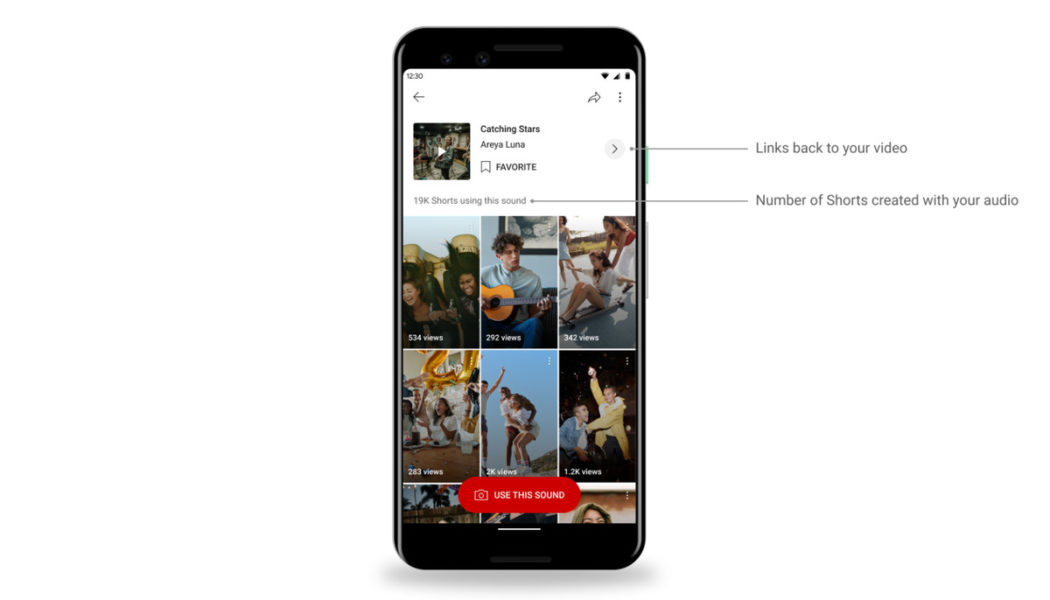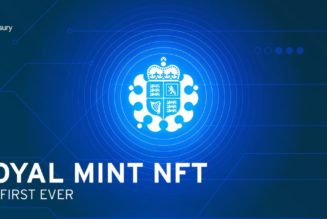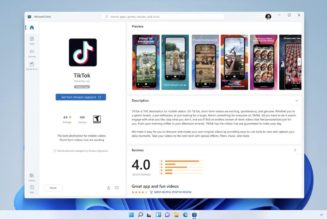Being able to sample audio from other users’ videos is one of TikTok’s greatest strengths. It allows memes to percolate across the platform and lets users discover new content by watching videos with the same sound. Soon, YouTube will expand this feature in its TikTok competitor, Shorts, letting users sample sounds from any content uploaded to YouTube.
YouTube officially announced this feature last month in a community support post, but tells The Verge it should now be available for the first time in new markets as part of the launch of Shorts in the UK, Canada, and a number of Latin American countries (including Argentina, Brazil, Chile, Mexico, Colombia, Peru and Venezuela). The YouTube-sampling tool will then roll out to other Shorts markets including the US in the coming weeks.
Shorts users can already sample sounds from other Shorts videos (as well as from a library of licensed music). But this update will greatly expand the audio they have easy access to. The feature will funnel YouTube users into its Shorts feature via a new “Create” button in the mobile app. This will appear underneath videos next to the like and dislike buttons. Clicking it will give users the option to sample the video’s audio in Shorts. Shorts viewers will also be able to tap the audio in any video to head back to the original source in YouTube proper.
:no_upscale()/cdn.vox-cdn.com/uploads/chorus_asset/file/22642212/Screen_Shot_2021_06_07_at_10.51.50_AM.png)
This feature will allow longform creators “to benefit by allowing the community to find something interesting in their video,” YouTube’s product lead for Shorts, Todd Sherman, tells The Verge. Shorts users can create something with the sample audio, he says, and the creators of the audio will “get perhaps inbound traffic or exposure from that. From the longform creator perspective I think a lot of folks are excited to have their things remixed.”
Not all creators are happy about this, though. After YouTubers noticed a new check-box in the settings for their video uploads that gives Shorts users access to their audio, many complained that this would let people “steal” their content. Search for “YouTube Shorts permissions” on YouTube itself and you’ll find plenty of videos worrying about exactly this scenario, with thumbnails posing questions like: “YouTube legalized video stealing?”.
The permissions box seems to have been introduced before Shorts users were actually able to sample audio from YouTube videos. Right now it has to be unticked manually for each video, but Sherman tells The Verge the company is working on a bulk opt-out option.
IMPORTANT:
YouTube suddenly automatically checked “Yes” on EVERY YouTube video to allow them to be re-uploaded as Shorts on OTHER channels ???Please let your YouTuber friends know that they have to go through and uncheck this setting on every video or risk stolen content… pic.twitter.com/b4rjiwmE2c
— Mysticat #Mysty200k (@MysticatLive) April 30, 2021
A YouTube-sampling feature could create other problems, too. A huge array of content has been uploaded to YouTube over the years, much of it sensitive or personal in nature. The uploaders of this content won’t necessarily want their videos to be sampled as this could enable harassment or abuse. Despite this, the sampling feature will be opt-out rather than opt-in. That means all YouTube videos will be sampleable by default, and creators will have to specify which videos they don’t want to be used in Shorts.
Sherman says YouTube is aware of these potential problems, but that the company’s discussions with creators has indicated more excitement. “There is some concern about examples of videos that you might think are personal or sensitive and that’s why creators have asked for the ability to opt out. But they also seem to recognize that it sort of doesn’t work if it’s very selectively an opt-in,” he says.
YouTube originally launched Shorts last September in India before bringing the feature to the US in March. Last month, the company announced plans to pay $100 million to creators to use the app, though exactly how much individual creators can earn isn’t clear.










